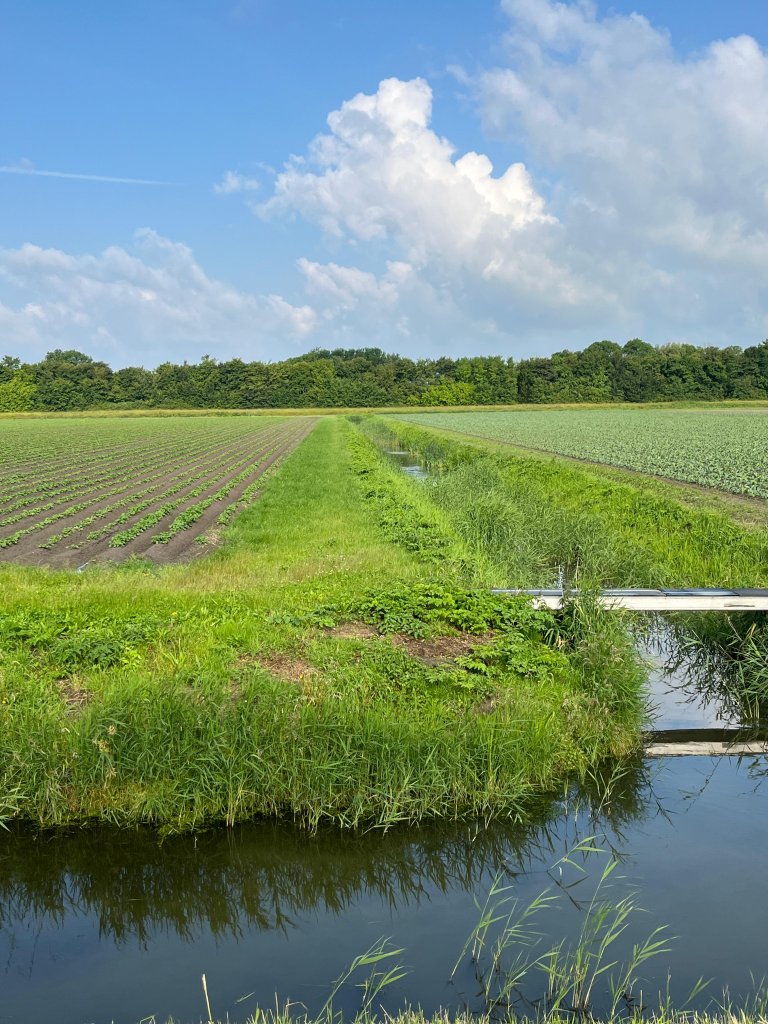Surveillance for cleaner surface water
Over the next six months, our environmental inspectors are surveying manure spreading, the application of plant protection products and cultivation-free zones, crop treatments such as rinsing, and the storage of manure and other farm waste. By complying with environmental regulations, agricultural operators contribute to cleaner surface water.
Environmental inspectors also share observed violations with the NVWA, Environmental Protection Agency or Environmental Police. Environmental monitoring also takes place from the air, such as by helicopter and with drones. This is an annual inspection.
Legislative amendment
The regulations governing manure spreading and cultivation-free zones have changed dramatically with the introduction of buffer strips. A buffer strip is a strip of land along the ditch of agricultural land on which no manure, plant protection products or biocides may be used. The purpose of such a strip is to protect water quality and increase biodiversity. As of Jan. 1, 2024, the rules on fertilizer-free buffer strips are in the Living Environment Activities Decree (BAL). Different widths apply depending on the type of surface water along which the plot lies. The shape of a plot can also affect the width of the buffer strip. All current information can be found on the website of the National Enforcement Agency: www.rvo.nl. The water board's environmental inspectors monitor in particular for (possible) runoff of fertilizer to surface water.
Plant protection products
The Water Board's environmental inspectors check whether spraying with crop protection products complies with environmental regulations. They pay attention to drift reduction, cultivation-free zones, use of approved spraying equipment and valid proof of professional competence (spray license).
Tips for entrepreneurs:
- Consult crop protection product labels for possible higher drift reduction requirement and wider crop-free zone.
- Make sure your sprayer is still SKL approved.
- Check that your sprayer license has not expired.
- Use of an edge cap is mandatory, even if plot side is not along a ditch.
- Pay attention to boom height and wind speed (maximum 5 meters per second/wind force 3-4).
- When filling the sprayer, maintain a minimum distance of 2 meters from the ditch.
Storage of solid manure and other agricultural farm wastes
Rules for storage of agricultural commodities such as feed, champost, plant residues, compost and manure are:
- Contaminated wastewater must not be discharged to surface water.
- Rainwater contaminated with wastewater from the stored substances must be collected and spread on agricultural land.
- Rainwater that has been in contact with material from substrate cultivation such as rock wool and wastewater from this material should not be allowed to run off to surface water. This can occur during crop rotation in greenhouse farming.
Business owners should always prevent pollutants or runoff from a storage facility from entering surface water. Even small contaminants have a negative effect on aquatic life in the ditch. Also this year, extra attention is being paid to the storage and transfer of used substrate material during crop rotation in greenhouse horticulture.
